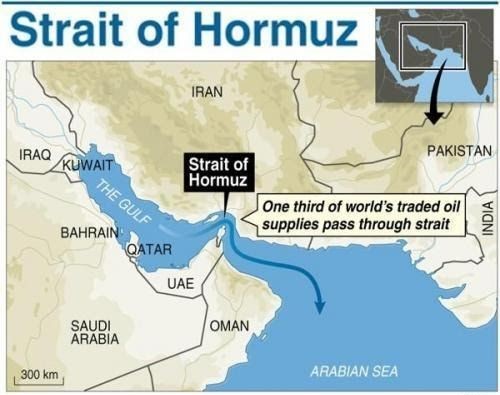Iran Moves to Shut Hormuz Strait : Oil Crisis Fears Surge
Iran’s Parliament passes a bill to close the Strait of Hormuz in response to Western sanctions. As the world watches, Supreme Leader khamenei’s response could ignite a major global crisis in oil trade, security, and geopolitics.
June 23, 2025 —

🇮🇷 Iran Approves Hormuz Shutdown Bill: Global Oil Crisis Looms as Khamenei’s Decision Awaits
Tehran, June 23, 2025 — In a historic and potentially explosive move, the Iranian Parliament has overwhelmingly approved a bill to close the Strait of Hormuz, the world’s most critical oil chokepoint, in retaliation against what it describes as “intensifying Western aggression and economic warfare.”
The bill, titled “National Defense of Persian Gulf Sovereignty Act,” received 227 votes out of 290, granting military and political authority to halt all foreign oil and cargo ships from transiting the strategic waterway if Iranian interests continue to be threatened by Western sanctions and naval presence.
“If our oil is not allowed to be exported, then no one else’s will,” declared Parliament Speaker Mohammad Bagher Ghalibaf in a defiant speech. “This is not a threat—it is a defensive strategy to preserve the sovereignty, security, and dignity of the Islamic Republic.”
The final decision now lies with Supreme Leader Ayatollah Ali Khamenei, who has yet to release an official statement. The world awaits his response, which could either escalate the situation into a full-blown crisis or initiate backchannel diplomacy to ease tensions.
🌍 Why the Strait of Hormuz Matters
The Strait of Hormuz is a narrow passage between the Persian Gulf and the Gulf of Oman. Around 21 million barrels of oil—about one-fifth of global consumption—pass through it daily. Major economies, including China, India, Japan, and EU nations, rely heavily on oil shipments through the strait.
If Iran proceeds with the closure:
- Global oil prices could skyrocket, with analysts predicting spikes to $120 or more per barrel within weeks.
- Shipping insurance rates may surge or become unavailable for the region, effectively freezing trade.
- The United States Navy’s Fifth Fleet, stationed in Bahrain, could be forced to respond militarily.
- Energy-dependent countries would face shortages, inflation, and potential recession-like conditions.
⚔️ Strategic & Military Consequences
The bill empowers Iran’s Revolutionary Guard Navy to intercept and, if necessary, detain or block non-Iranian vessels. The legislation also calls for:
- Establishing new military outposts along the southern Iranian coast.
- Conducting live-fire naval drills near the strait.
- Launching cyber operations against hostile regional powers.
U.S. Secretary of State Antony Blinken condemned the bill, stating, “This reckless legislation threatens global peace and economic stability. The U.S. and its allies are prepared to keep the strait open by all necessary means.”
🛢️ Impact on Oil Markets & Global Economy

As rumors of the Hormuz closure spread, markets responded sharply:
- Brent crude rose by 2%, closing at $76.52 per barrel.
- J.P. Morgan warns oil price increase up to $110-120 per barrel.
- OPEC members have called for emergency discussions to offset the threat.
- Major importers like India and China have initiated talks with Russia, Venezuela, and African oil producers to secure alternative supply routes.
Economic analysts warn that if the strait remains blocked for more than a month, global inflation could return to pandemic-era highs, undoing years of economic recovery.
🔮 Future Outlook & Predictions
While Supreme Leader Khamenei has historically shown cautious restraint, his past rhetoric supports the bill’s essence. Should he endorse the legislation, experts predict:
- Increased naval confrontations between Iranian forces and U.S./UK fleets.
- Proxy escalations in Lebanon, Syria, and Yemen.
- Cyberattacks targeting critical infrastructure in Western countries.
However, there remains a sliver of hope for diplomacy. Qatar and Oman have reportedly offered to mediate emergency talks between Iran, the U.S., and Gulf nations.
🗣️ Public Sentiment in Iran
Across Iran, nationalists and hardliners celebrated the bill as a symbol of strength. Social media is ablaze with hashtags like #HormuzDefense and #OilForAllOrNone. But moderate voices have cautioned that economic self-isolation will hurt Iranian citizens most.
“We support our country’s dignity,” said Mahdi, a Tehran university student, “but not if it means war, hunger, and bloodshed.”
📢 Conclusion
The approval of the Hormuz shutdown bill marks a dramatic shift in Iran’s geopolitical strategy. With Ayatollah Khamenei’s response imminent, the fate of the world’s oil supply, economic stability, and regional peace now hang in delicate balance.
Whether this move becomes a masterstroke of negotiation leverage or the spark of a larger conflict—only time will tell.
